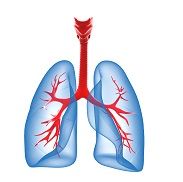Article
Teamwork Reduced UK Asthma ED Visits
Author(s):
Patients in the United Kingdom who have been frequently admitted to the hospital for asthma benefit from a multidisciplinary team approach, according to the results of a recent study.

Patients in the United Kingdom who have been frequently admitted to the hospital for asthma benefit from a multidisciplinary team (MDT) approach, according to the results of a recent study. Written by Hannah Burke, MD, of the Department of Respiratory Medicine at University Hospital Southampton, UK, and colleagues, the study was published on July 29, 2016, by the European Society Journals.
In 2010, the University Hospital Southampton introduced an MDT strategy for patients frequently admitted for asthma. The team consisted of a consultant, a specialist nurse, a physiotherapist, and a psychologist. The researchers say that 5-10% of asthmatics in the UK are classified as having “difficult asthma” according to guidelines set forth by the British Thoracic Society, and such patients are 20 times more likely to be admitted to the hospital. Hospitalization, in turn, is a predictor of mortality.
The authors say, “A subgroup of patients with difficult asthma suffer from frequent asthma exacerbations and experience repeated hospital admissions.” It was this group of patients the staff at University Southampton aimed to help with the MDT strategy. “In this article we report the outcomes of this novel management pathway over a 3-year monitoring period,” say the researchers.
One-third of the asthma patients admitted in 2010 had been admitted 2 or more times previously. Most were women, and many had a psychological comorbidity. In order to find out if the MDT approach was effective, the researchers report “we repeated the systematic search of the hospital database for patients who had been admitted on two or more occasions in 2011 and 2012 and compared the results to 2010.”
The researchers say, “each year, this group showed consistent features: patients were predominantly female, obese and had numerous comorbidities.” The introduction of the MDT strategy resulted in a 33% reduction of repeat asthma admissions from 127 in 2010 to 84 in 2012. Additionally, “bed days fell by 52% from 895 per year in 2010 to 430 in 2012,” say the researchers.
Although this study is “part of a retrospective service evaluation,” according to the researchers it represents “a real-life” cohort, which was well-characterized and followed for more than 3 years. They state, “We feel that this approach could have wider implications for management of patients with difficult asthma and would encourage that the lessons learned from this service review can be implemented elsewhere to improve patient outcomes.”
The use of a case management type of approach, which is designed to help integrate the services needed by patients with long term conditions, is, according to the researchers “an important part of our intervention.” They go on to say that case management is often part of primary care but less often recognized in secondary or tertiary care. They conclude by saying, “We propose that further research should focus on prospective controlled trials to validate this approach in other populations and identify key aspects of the MDT program that may be universally applied to those that may be population specific.”




